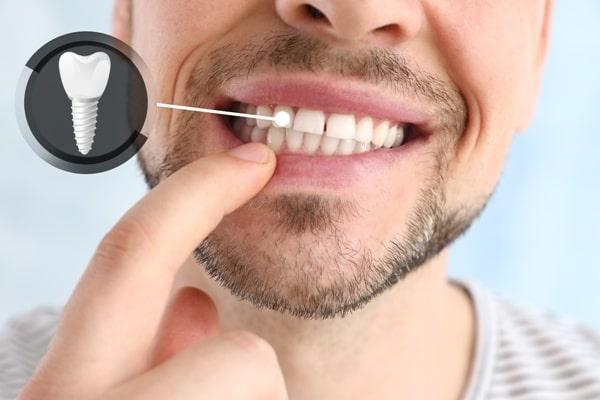Bridges vs. Dental Implants: Which Is Better for Islamabad Patients?

Tooth loss can significantly impact your oral health, appearance, and overall quality of life. Fortunately, modern dentistry offers several solutions to replace missing teeth, with dental bridges and dental implants being the most common options. Choosing between the two can be challenging, especially with various factors to consider, such as durability, cost, and long-term benefits. If you are exploring Dental Implants in Islamabad, you can learn more about this solution at Dental Implants in Islamabad.
What Are Dental Bridges?
A dental bridge is a prosthetic device used to replace one or more missing teeth by anchoring to the adjacent natural teeth or dental crowns. The bridge consists of artificial teeth (pontics) supported by crowns placed on the surrounding healthy teeth.
Types of Dental Bridges:
- Traditional Bridges: Supported by crowns on both sides of the gap.
- Cantilever Bridges: Used when there is only one adjacent tooth.
- Maryland Bridges: Supported by a metal or porcelain framework bonded to the back of the adjacent teeth.
- Implant-Supported Bridges: Anchored to dental implants instead of natural teeth.
Advantages of Dental Bridges:
- Quicker treatment process compared to implants.
- Cost-effective initial solution.
- Suitable for patients with insufficient bone density.
- Restores chewing and speaking functions effectively.
Disadvantages of Dental Bridges:
- Requires grinding down healthy adjacent teeth.
- Higher risk of decay under the crowns.
- May need replacement every 5 to 15 years.
- Does not prevent bone loss in the jaw.
What Are Dental Implants?
Dental implants are titanium posts surgically inserted into the jawbone to replace the root of a missing tooth. Once the implant fuses with the bone through osseointegration, a crown is placed on top to restore function and aesthetics.
Advantages of Dental Implants:
- Mimic the function and appearance of natural teeth.
- Preserve jawbone density and prevent bone loss.
- Do not affect adjacent healthy teeth.
- Offer long-term durability, often lasting a lifetime with proper care.
- Provide stable support for eating and speaking.
Disadvantages of Dental Implants:
- Higher initial cost compared to bridges.
- Longer treatment time due to healing and integration processes.
- Requires adequate bone density (bone grafting may be needed).
- Minor surgical risks, such as infection or nerve damage.
Comparison: Bridges vs. Dental Implants for Islamabad Patients
1. Treatment Duration
- Dental Bridges: Typically completed within 2 to 3 weeks.
- Dental Implants: Can take several months due to the healing period after implant placement.
Verdict: If you need a quicker solution, bridges may be more suitable. However, implants offer a more permanent solution despite the longer timeline.
2. Durability and Longevity
- Dental Bridges: Last between 5 to 15 years, depending on care.
- Dental Implants: Can last a lifetime with proper maintenance.
Verdict: Implants are a better long-term investment.
3. Impact on Adjacent Teeth
- Dental Bridges: Require filing down adjacent healthy teeth for crown placement.
- Dental Implants: Do not involve neighboring teeth, preserving their natural structure.
Verdict: Implants are less invasive to surrounding teeth.
4. Bone Preservation
- Dental Bridges: Do not prevent jawbone deterioration.
- Dental Implants: Stimulate the jawbone, maintaining its density and structure.
Verdict: Implants are the preferred option for preventing bone loss.
5. Cost Considerations
- Dental Bridges: Lower upfront cost but may require replacement over time.
- Dental Implants: Higher initial investment but more cost-effective in the long run.
Verdict: Bridges may be budget-friendly initially, but implants provide better value over time.
6. Oral Hygiene and Maintenance
- Dental Bridges: Require special cleaning tools to prevent plaque buildup.
- Dental Implants: Easier to maintain, similar to caring for natural teeth.
Verdict: Implants offer more straightforward maintenance.
7. Aesthetic Appeal
- Dental Bridges: Blend well with natural teeth but may show a dark line near the gum over time.
- Dental Implants: Provide a more natural appearance without affecting surrounding teeth.
Verdict: Implants generally offer superior aesthetics.
Factors to Consider When Choosing Between Bridges and Dental Implants
1. Oral Health and Bone Density
If you have sufficient bone density and healthy gums, implants are a viable option. Patients with significant bone loss may need grafting before implant placement, which could extend treatment time.
2. Medical Conditions
Certain conditions like diabetes or heart disease may affect healing after implant surgery. Always consult with your dentist to determine the best solution for your health.
3. Budget and Insurance Coverage
While bridges may seem more affordable initially, the long-term maintenance and potential replacements can add up. Implants may have a higher upfront cost but require less ongoing expense.
4. Personal Preferences and Lifestyle
Consider factors like how quickly you need the restoration, your commitment to oral hygiene, and your long-term goals for dental health.
5. Dentist’s Recommendation
Your dentist’s assessment is crucial. They will consider your specific case, including jawbone health, number of missing teeth, and overall oral condition.
Why Islamabad Patients Should Consider Dental Implants
Islamabad offers advanced dental facilities with experienced professionals skilled in implantology. Opting for Dental Implants in Islamabad ensures access to modern technology, personalized treatment plans, and high success rates.
Benefits of Choosing Dental Implants in Islamabad:
- State-of-the-art equipment like 3D imaging for precise implant placement.
- Experienced dental surgeons with expertise in implantology.
- Customized care tailored to individual patient needs.
- High-quality materials ensuring durability and comfort.
FAQs: Bridges vs. Dental Implants
Q1: Which option is less painful?
Dental bridges involve less invasive procedures, while implants require surgery but are performed under local anesthesia to minimize discomfort.
Q2: How long do dental implants and bridges last?
Implants can last a lifetime with proper care, whereas bridges may need replacement after 10 to 15 years.
Q3: Are dental implants suitable for older patients?
Yes, age is not a significant factor. Health, bone density, and gum condition are more critical considerations.
Q4: Which option requires more maintenance?
Bridges require special cleaning tools, while implants can be cared for like natural teeth.
Q5: Can I switch from a bridge to an implant later?
Yes, but prolonged use of a bridge without implants may lead to bone loss, complicating future implant placement.
Making the Right Choice: Bridge or Implant?
Choosing between a bridge and an implant depends on your unique needs, budget, and long-term goals.
Choose Dental Bridges if:
- You need a quick solution.
- Your bone density is insufficient for implants.
- You prefer a less invasive procedure.
Choose Dental Implants if:
- You want a long-lasting solution.
- Preserving jawbone density is important.
- You want to avoid affecting adjacent teeth.
- You are committed to a long-term investment in your oral health.
Conclusion
Both dental bridges and implants have their merits, but Dental Implants in Islamabad offer superior long-term benefits, including better durability, jawbone preservation, and improved oral function. While bridges may be suitable for some patients seeking a quicker or more cost-effective solution, implants provide lasting results that enhance overall quality of life.
For expert advice and personalized care, consult the professionals at Dynamic Clinic. Their experienced team is dedicated to helping you choose the best tooth replacement option, ensuring your comfort and satisfaction throughout the process.






